Back by popular request, yet another gem unearthed from the 1908 edition of the Confederate Veteran magazine, July issue in this case. Be it known that there are several more of these forthcoming, and that, as always, they are presented to you slightly edited for ease of readability purposes by yours truly.
This one’s for you, Rebel Roy, original VETERAN introduction inclusive. No further ado necessary. Enjoy.
WHAT A LETTER MAY DO
A letter of inquiry is a simple but oftentimes potent missive, and the VETERAN may take a pardonable pride in its success as a detective agency. Every month brings to light the revival of old friendships by establishing the identity or abiding place of many an old and loved comrade who would otherwise remain in obscurity to the friend who seeks him. Can there be a more touching picture than the one the mind conjures of an aged veteran of a splendid conflict standing so near the border of two worlds and seeking the whereabouts of a comrade dear to memory who may have already journeyed to that other land, where the soldier rests whose warfare’s o’er?
To find and unite the living and to be the bearer of messages is a service in which the VETERAN rejoices, and in this connection a story is told that will furnish interest to many readers.
UNCLE JOHN COATS
One of the most thrilling and daring incidents of the war has come to light within the past few months, the central figure being Uncle John Coats, of Montevallo, Mo. Mr. Coats enlisted in the Confederate army while but a youth. He fought like a hero and served the cause he had espoused with great bravery and was a daring scout. Just before the battle of Jenkins’ Ferry, Coats and a comrade were sent out ahead to locate the Federals. He and his comrade went out horseback, and suddenly saw, just ahead of them, ten Federal soldiers and other evidences that told them they had passed the Federal pickets and were between the pickets and the Federal army. Coats’s comrade put spurs to his horse and escaped, but Mr. Coats rode up and was halted. When asked who he was, he said, “I am a Confederate soldier”; and, firing two shots from his big trusty revolver, rode away.
He soon came to a house, and, having eaten no food for many hours, asked for his dinner. The good woman of the house told Coats that she could give him something to eat, but for him to stop would mean his capture, as he was still between the pickets and the Federals. Coats replied that he knew his danger, but he would take the chances.
When asked who he was and where he came from, he told her that his name was John Coats, and that he came from Holden, Johnson County, Mo.; and this information is responsible for his being located at this time. Coats went into the house, took a seat at the table, and placed his two revolvers on each side of his place. In front of him, behind him, and at one side were windows, and at the other a door. His horse was tied where it could be quickly reached in time of emergency.
When Coats had about half finished his meal, he was startled by the command to surrender. The unwelcome command came from two windows, and quicker than a flash Coats grabbed his two revolvers, fired at each window, and kept on firing until he reached his horse and then mounted, and as the bullets whizzed around his head he returned the fire and speedily left the place. He escaped; but never knew what effect his shots had until a short time ago, when he learned that his aim was true to the mark.
The good woman who prepared his dinner could never locate Mr. Coats, though she sought for his whereabouts through many channels. Her daughter determined to continue the search, and through the CONFEDERATE VETERAN was rewarded by a reply from Mr. Coats himself. In answer to Mr. Coats’s reply through the VETERAN , Mrs. Bettie Taylor, of Springfield, Mo., wrote the following letter:
ATLANTA, GA., July 5, 1907
“Mr. John Coats: It is with inexpressible pleasure that I tell you I received your most welcome letter. I have unceasingly tried to locate you since the war. I put several notices in the St. Louis papers, then in the Warrensburg paper, in Johnson County. About a year ago I met Captain Blucher, of Arkansas. He said he knew you very well, and that he met you in Kansas City some three years ago. That gave me new courage, and I sent a notice to the Kansas City Times, but got no word.
“Captain Blucher said he had been in several engagements with you; [he] said you were as brave a soldier as ever fired a gun. I told him I was a witness to that. Last February I sent a notice to the CONFEDERATE VETERAN, and am very thankful that my last effort was crowned with success. You don’t know how glad I am to know you got home to your dear kindred and friends and have passed so many happy years with them. I will answer your questions.
“Yes, I am the girl that was there. I married a Confederate soldier when I was twenty- three years old. He went through the war with my father. He is sixty five and I am fifty nine. We live in Springfield, I am in Georgia visiting my parents. My father is eighty four and my mother [is] eighty one.
“You want to know if you hurt anyone on that never-to-be-forgotten day. I will tell you, and then you can judge for yourself. When you got up from the table, there was a man at each window. They both fell dead. As you went out the back door you killed two more; the one east of the house who told you to stop also fell dead. The one who shot at you jumped over the fence and fell mortally wounded when you fired back and died four hours later at our house.
“I don’t think I ever grew a particle after that day. My mother and I walked four miles that evening to my uncle’s [house]; and when we got there, we found two more Yankee soldiers wounded. We told them what had happened at our home, and one of them said: ‘That is the very Rebel that shot us.’ One of them died at my uncle’s and the other one got well. He said he was from Pettis County, Mo. I told him what you said your name was, and he said he knew a John Coats, of Windsor, Mo., and you had a brother-in-law in Pettis County named Bell; but he did not think it could be you, for you were too young. His name was Elliot.
“I wrote to Mr. Elliot after the war, asking him about you; he answered saying he did not know anything of you and had no desire to see you. So now you can judge for yourself whether you hurt anyone or not.
“My mother prayed for you thousands of times, that you might live to get home. O, I shall never forget how you looked as you rode away and looked back with pistol in hand, bidding defiance to all pursuers.
“The Yankees came [the] next day and buried their dead. They made us take care of the wounded man till he died. We expected to be burned out and perhaps killed, but the officers were very kind to us; [they] did not allow anything [to be] molested. My mother told them it was no fault of hers. The officer told her [that] if six United States soldiers let one Rebel get away, he thought the credit was due to the Rebel.”
I should add only that I searched for and found several memorials bearing the name John Coats in the Find a Grave database; the John Coats whose memorial I found, whose information meets most of the criteria I entered to narrow my search, is the same John Coats I linked to in the body of the VETERAN item above. I believe he is indeed the subject of the above-narrative, but cannot be 100% certain. Whoever this man was in any case, he was certainly a man of steely nerves in the face of overwhelming odds against him; not to mention, deadly accurate with a pistol in spite of those odds. But now I’m stating the obvious.
Rest in Peace, John Coats. God bless your beloved Southland, sir!
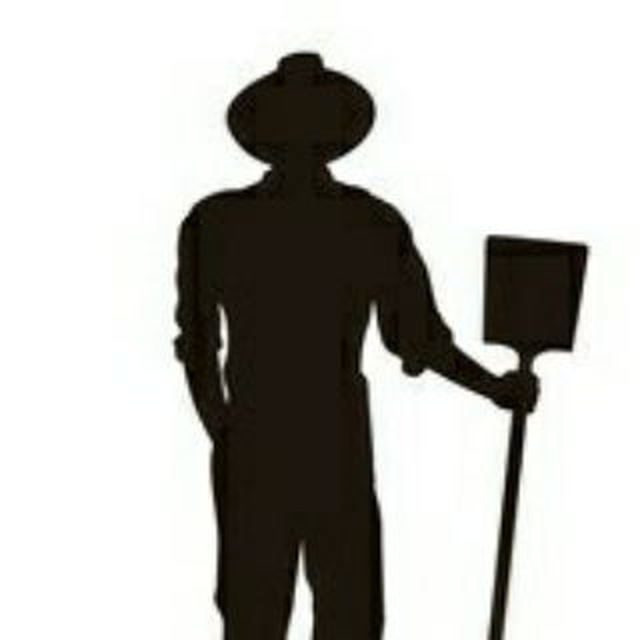

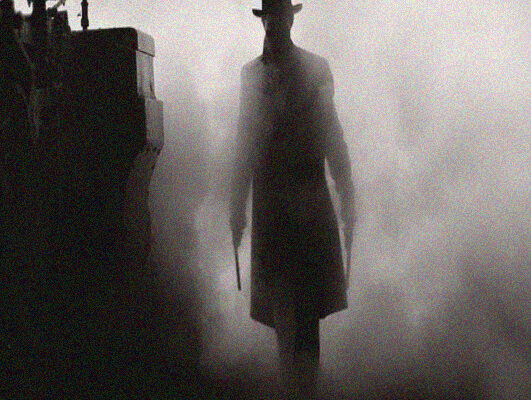
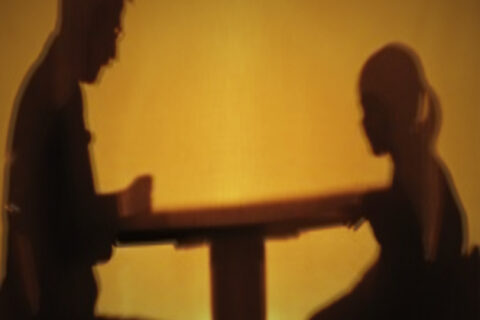
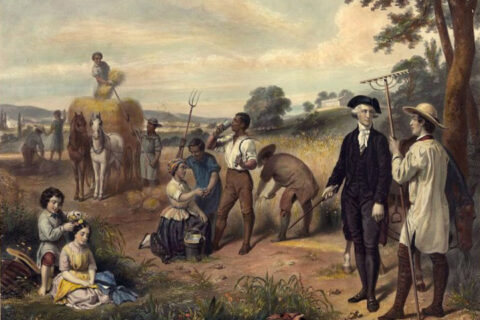
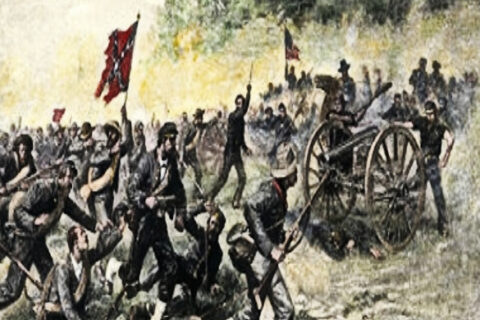

Nice account and very appropriate scene from ‘The Outlaw Josey Wales’ at the end! (Love the spitting when he sees the Yankees).
Riley Crawford (the youngest of Quantrill’s men) is another great story of confederates from Missouri:
http://quantrillsguerrillas.com/en/articles/232-riley-crawford-of-quantrill-s-guerrillas-awarded-the-southern-cross-of-honor.html
Thank you German Confederate.I will be reading that fine story.God bless and protect you.
Excellent
Very interesting. Good stuff.
Thank you T.Morris Sir for a GREAT story.I have been saving it all week till I had time to read and truly enjoy it and I surely have.What a fantastic man,John Coats,was.And its heartening to hear of women who were true to their race and men such as Mrs Taylor.An all around exciting and touching story and I thank you.Mr Coats serves as an example to us all,and we need those to guide us and lend us courage.I remember seeing old footage Of Gov Wallace leading a reporter around the Governor’s mansion and showing portraits of Southern heroes and how he drew on their courage and example.He showed a portrait I believe of William Lowndes Yancey and quoted him as saying”I would rather live a short life of truth and honor than a long life of compromise”.It has been since the 80’s when I saw it but I believe that is the name and on the quote the word truth may have been something similar.I have tried to find that quote online but failed.Thanks again for making my day.God bless and keep you.Christ is King.